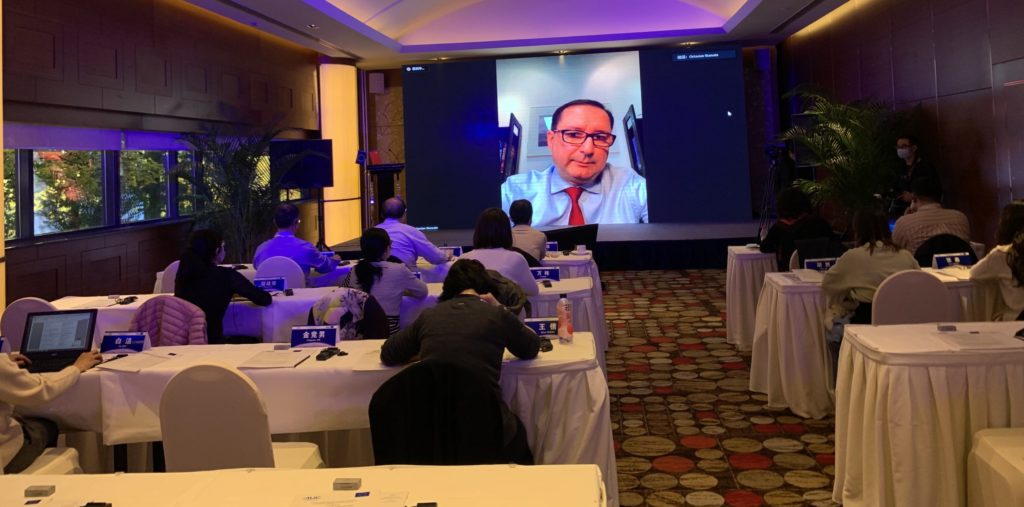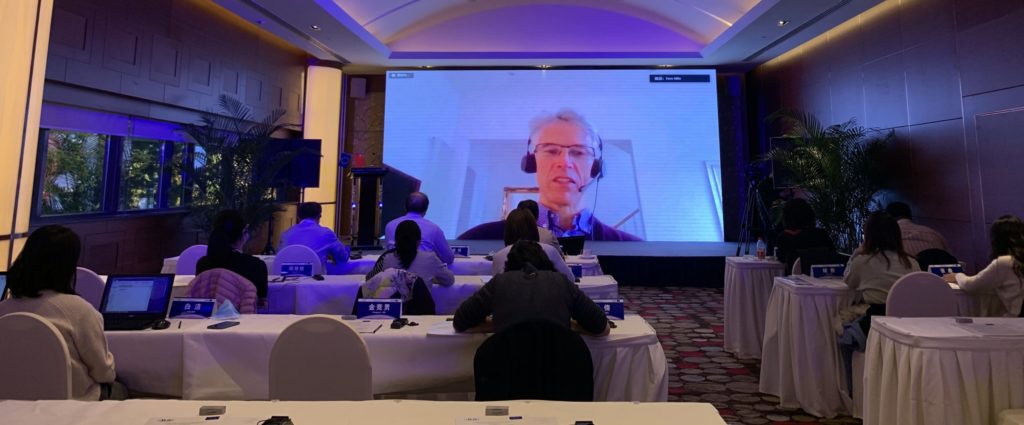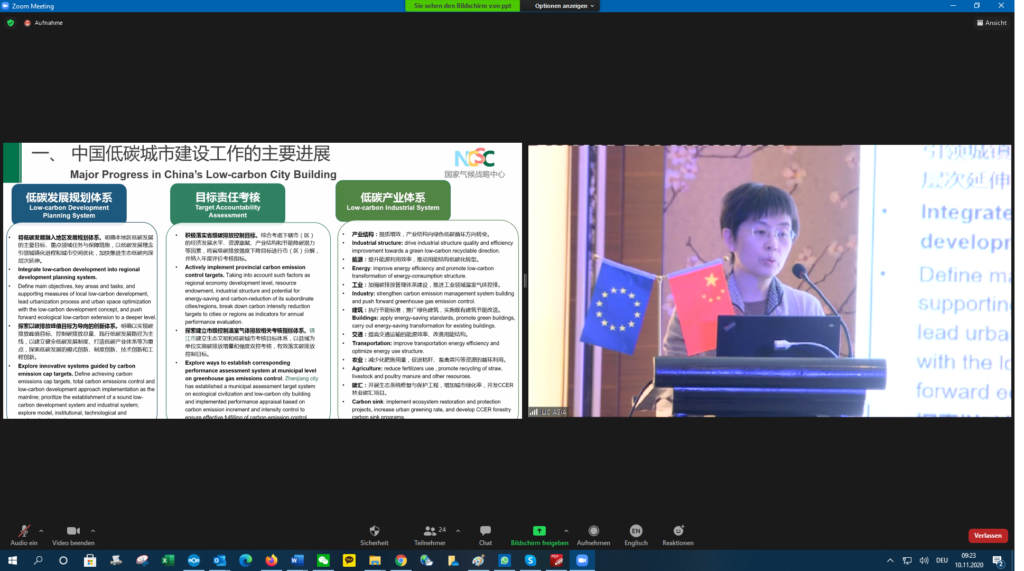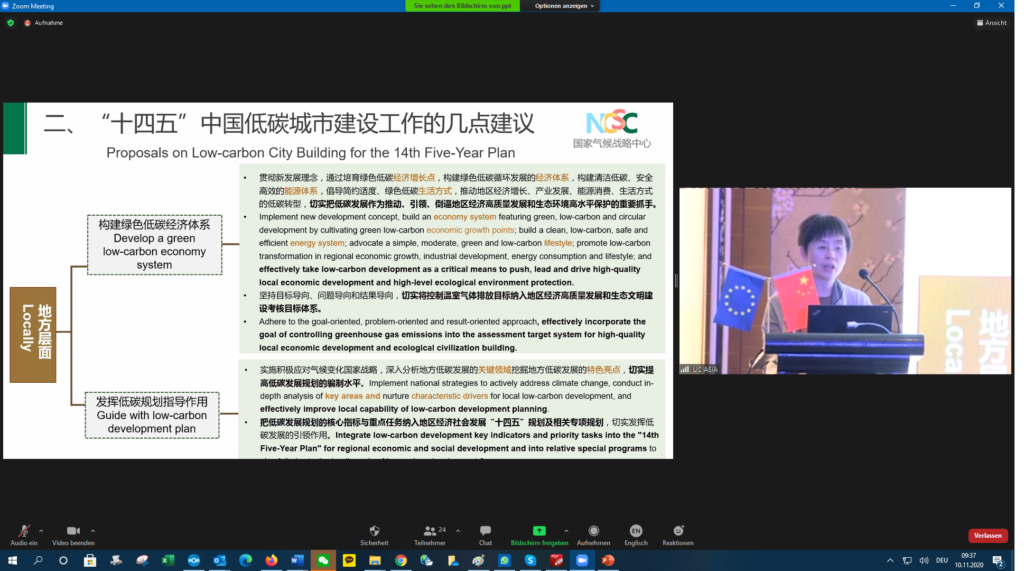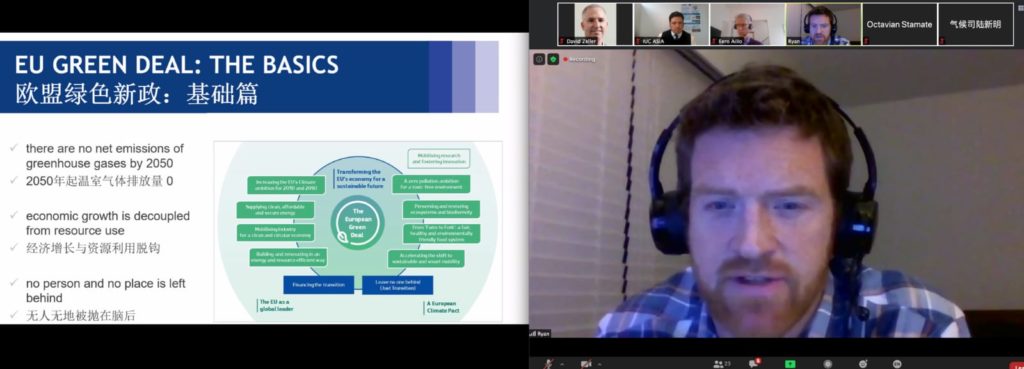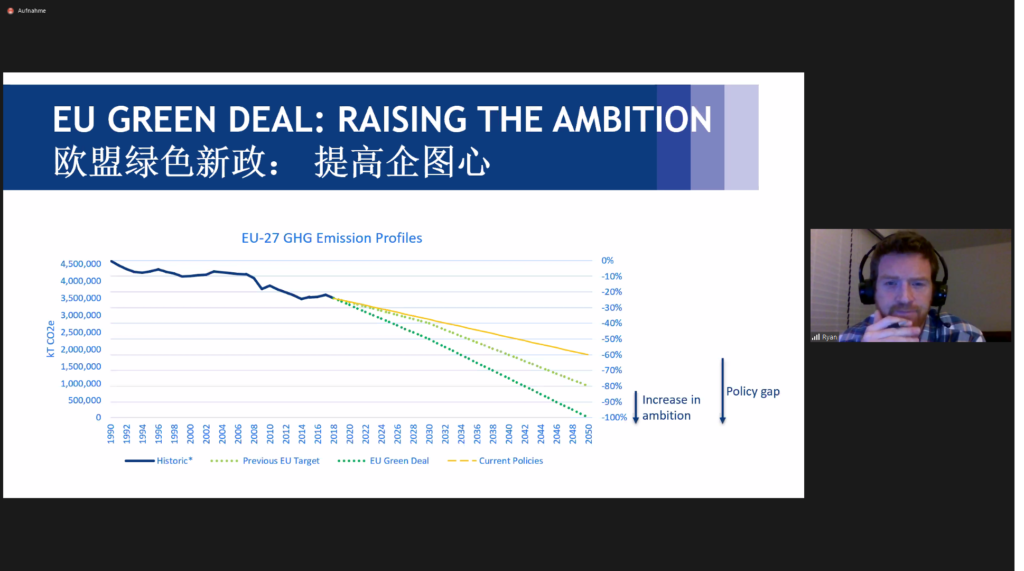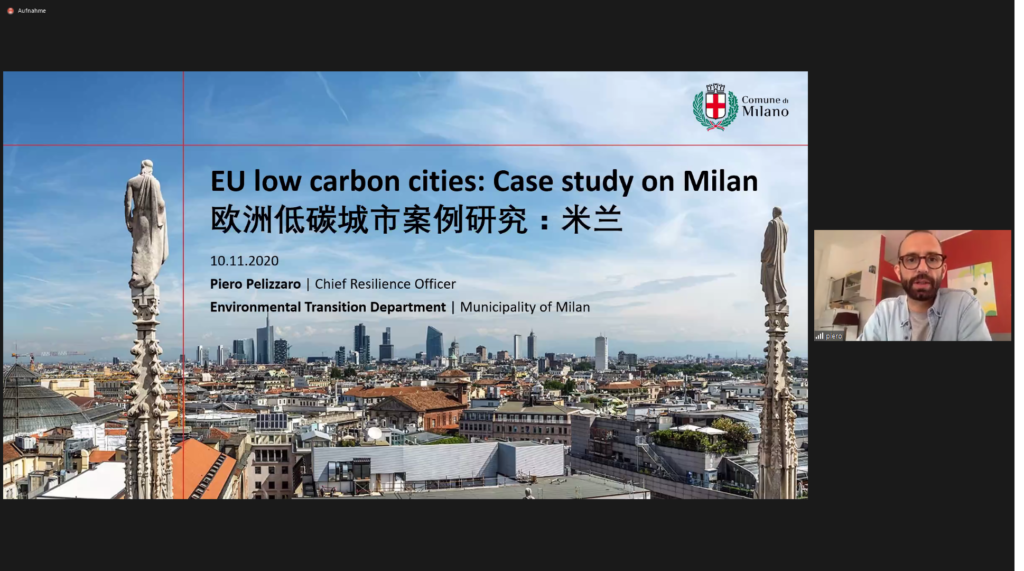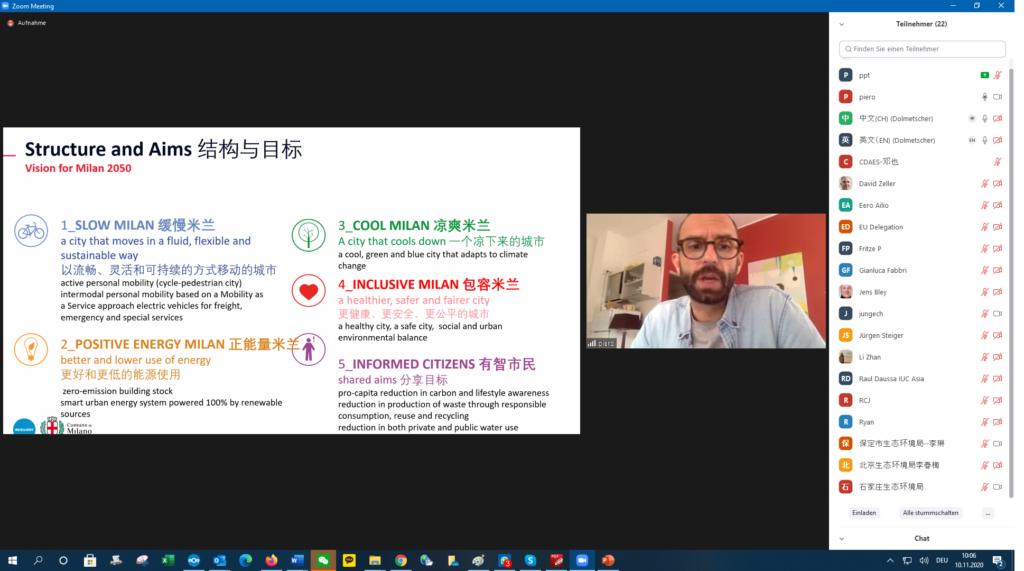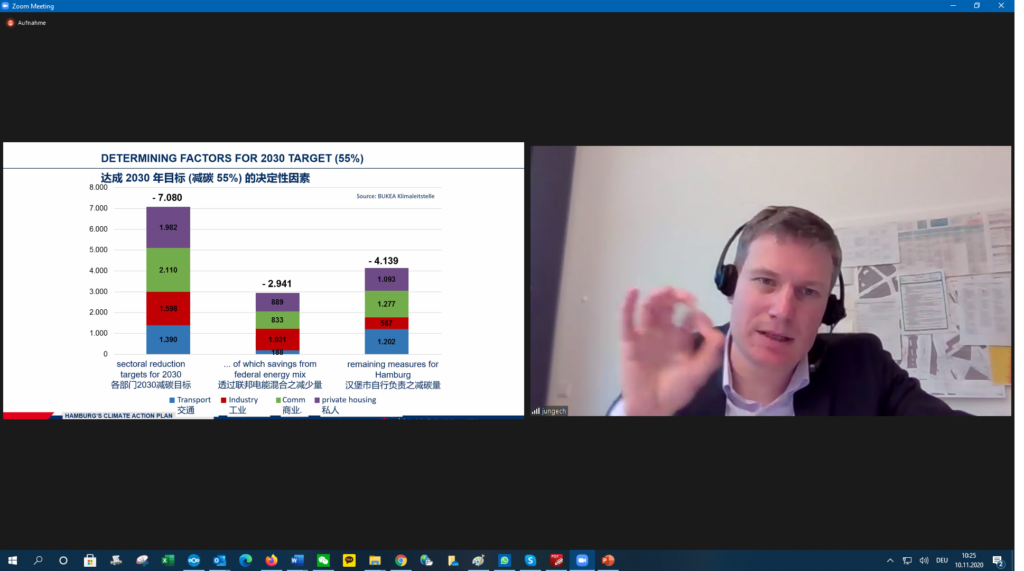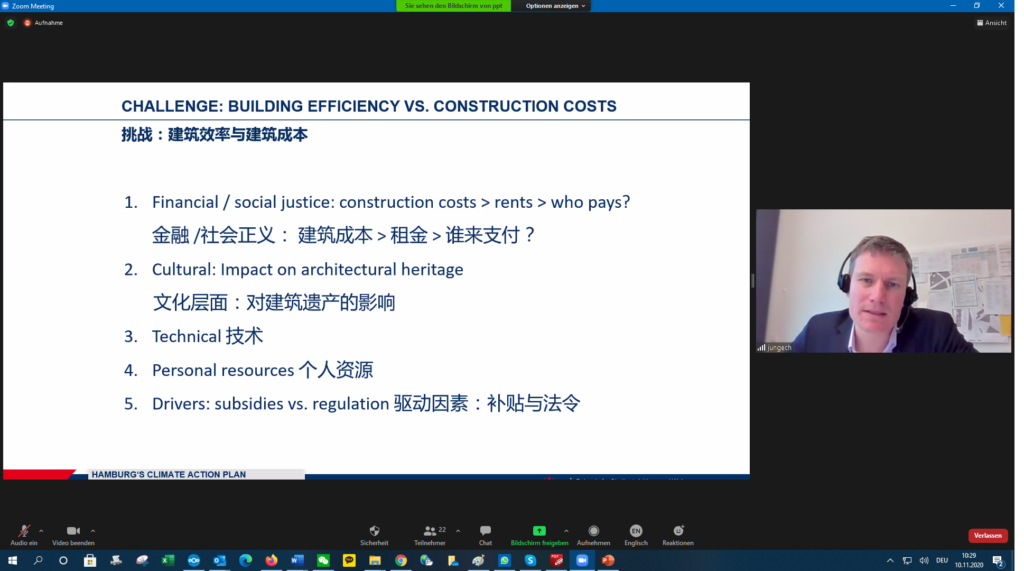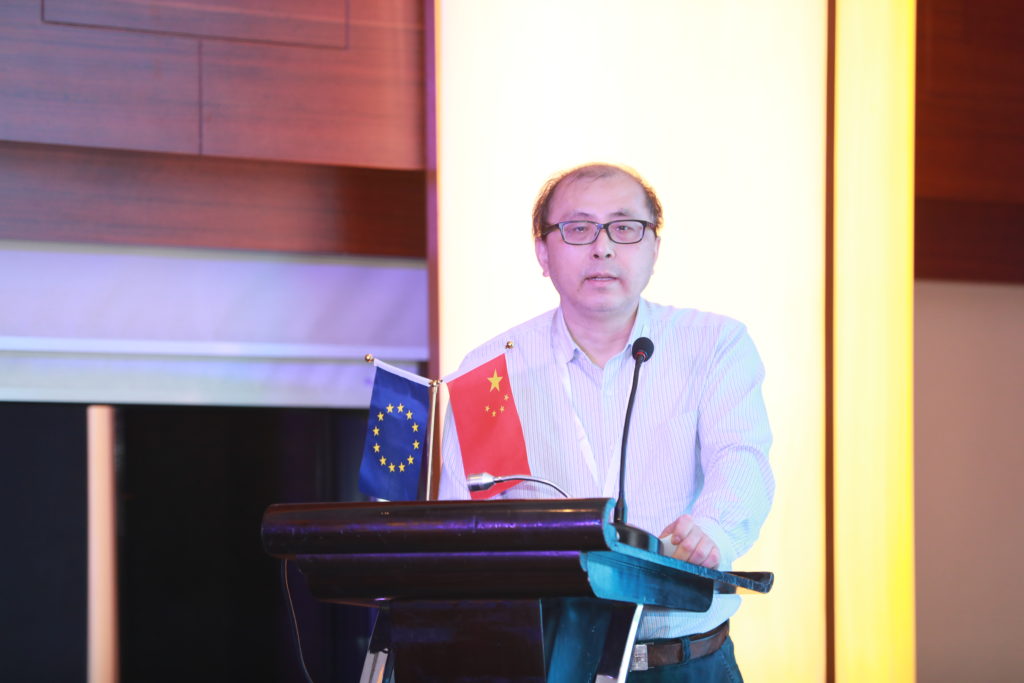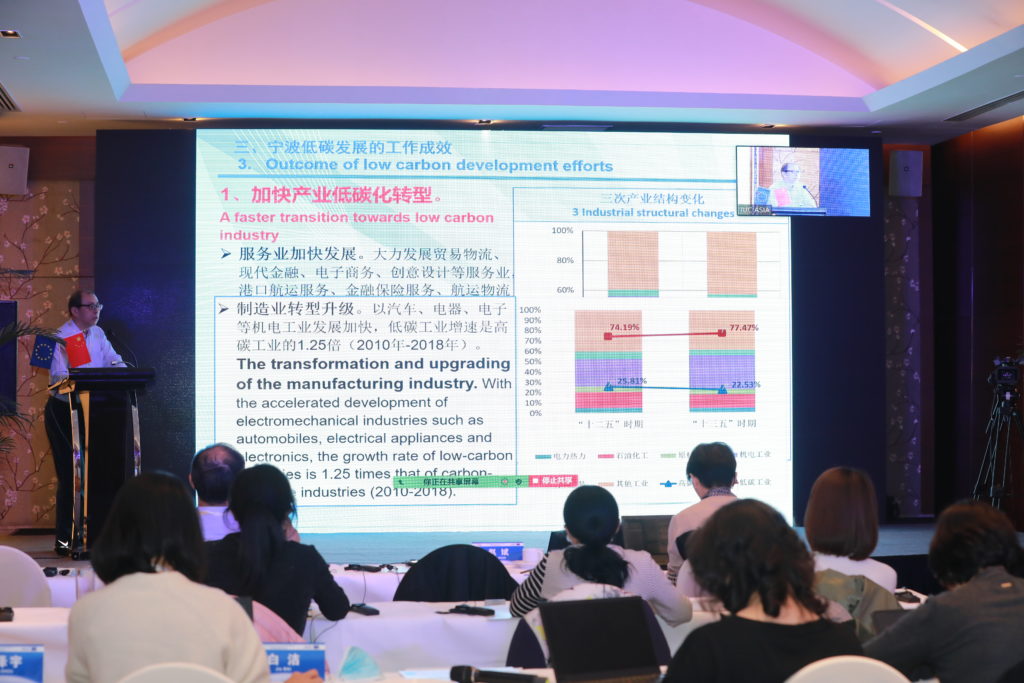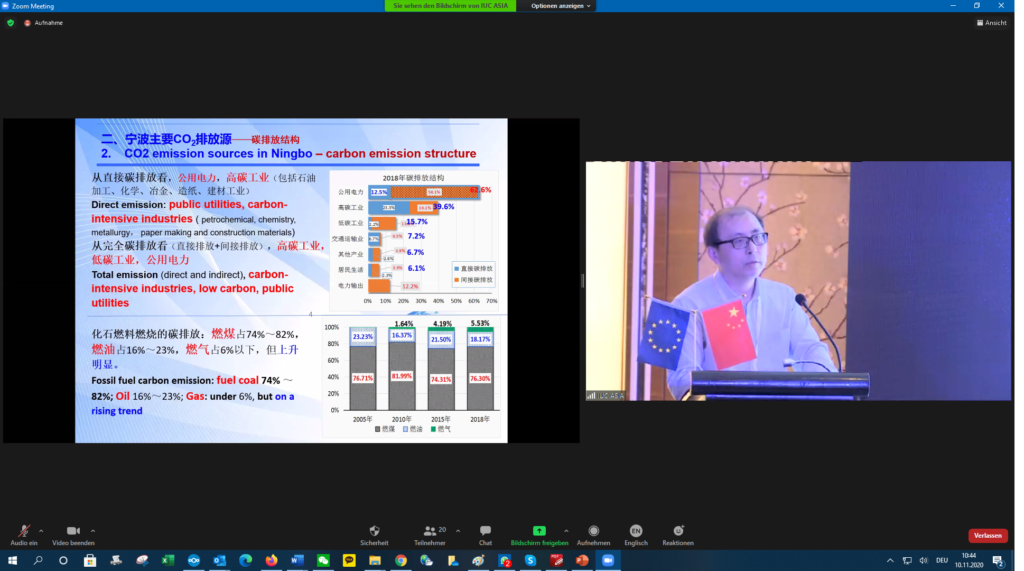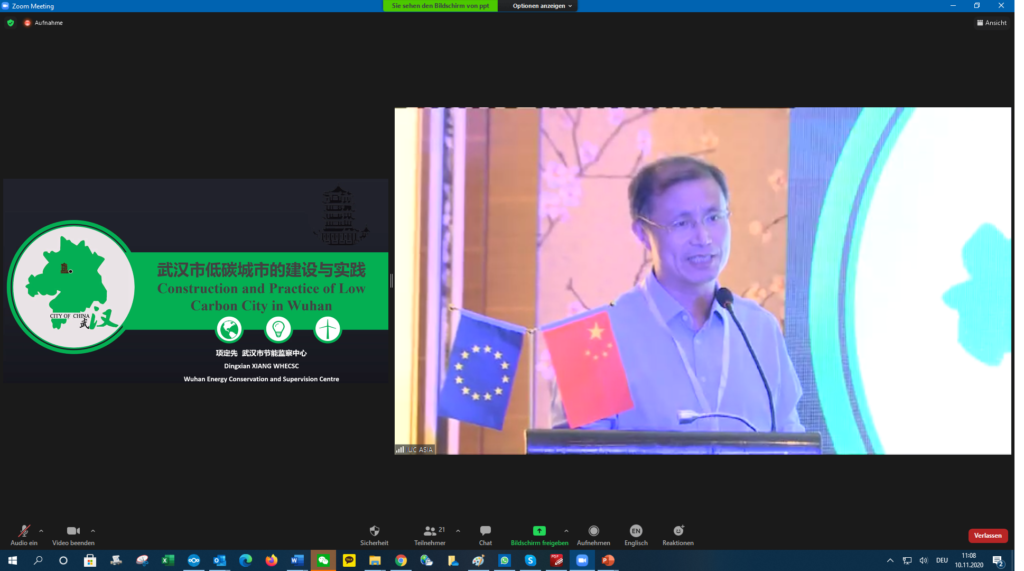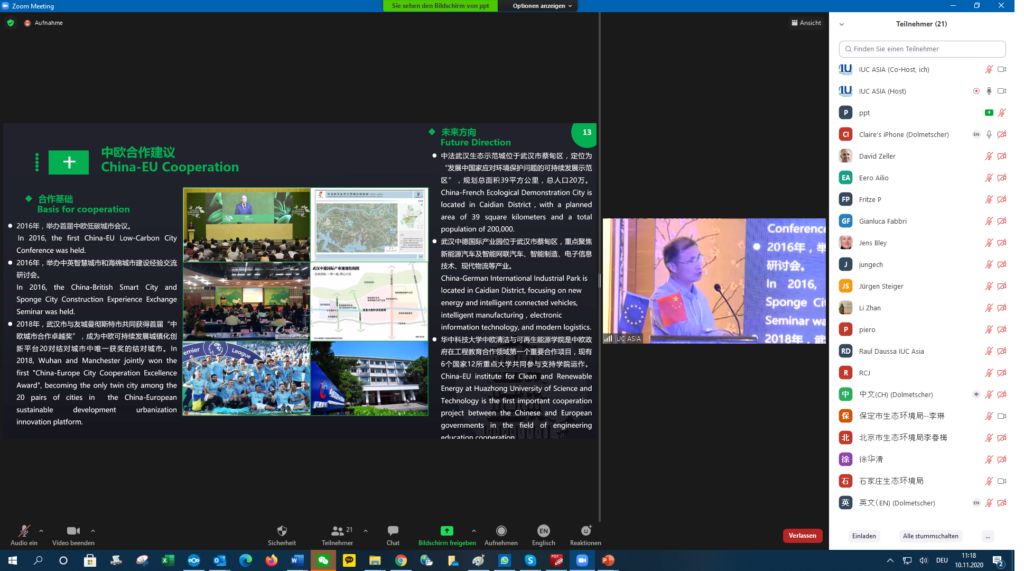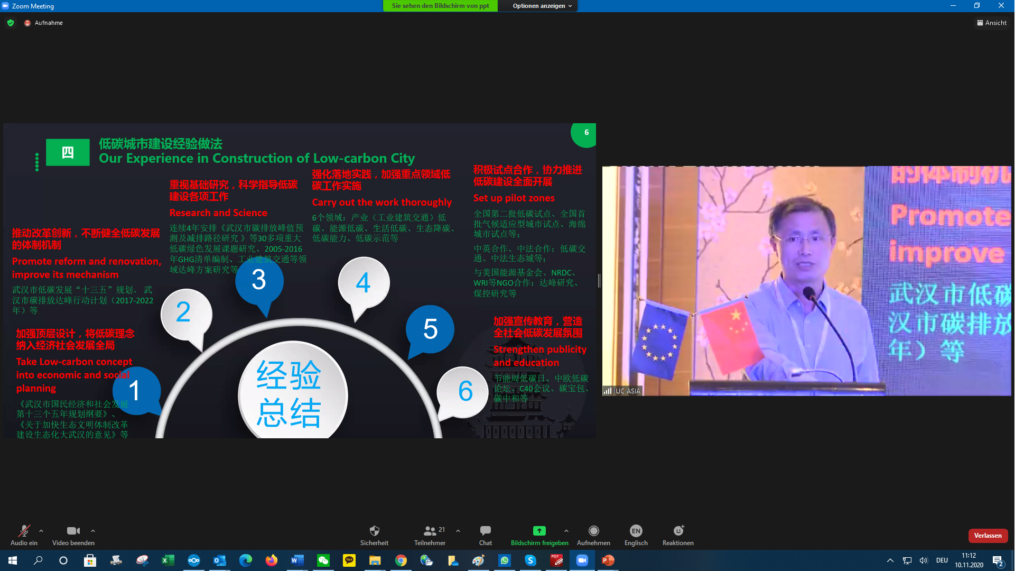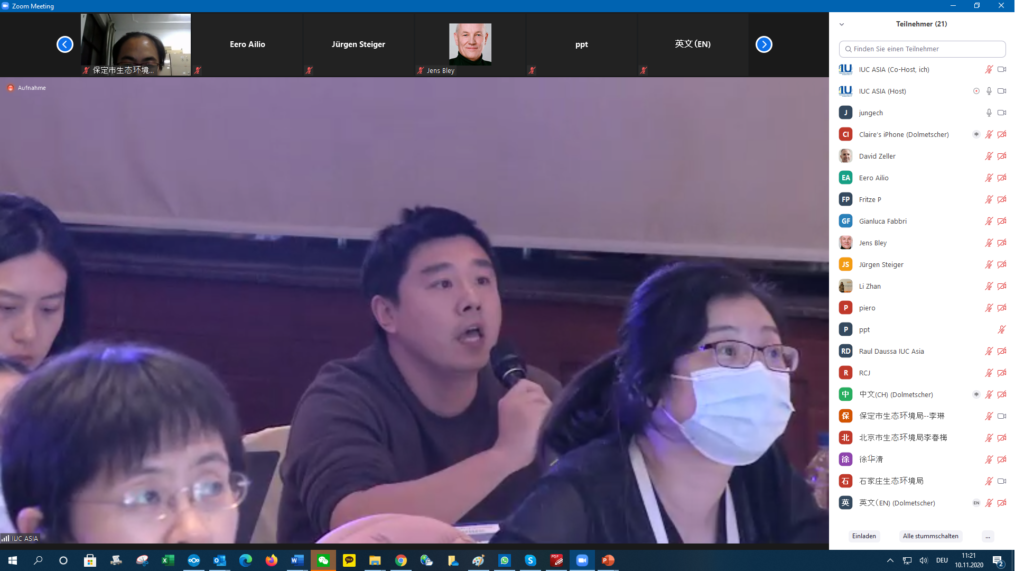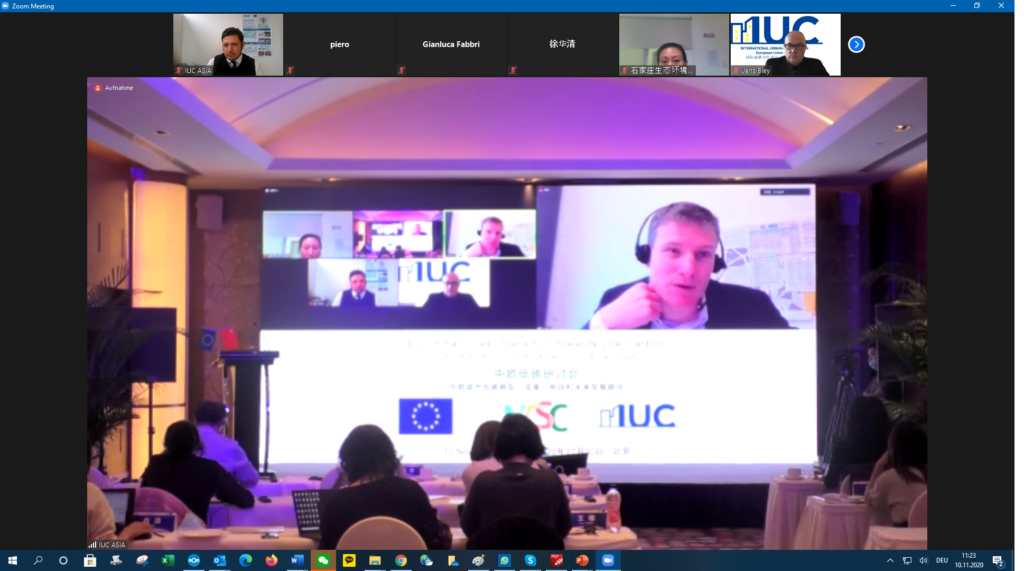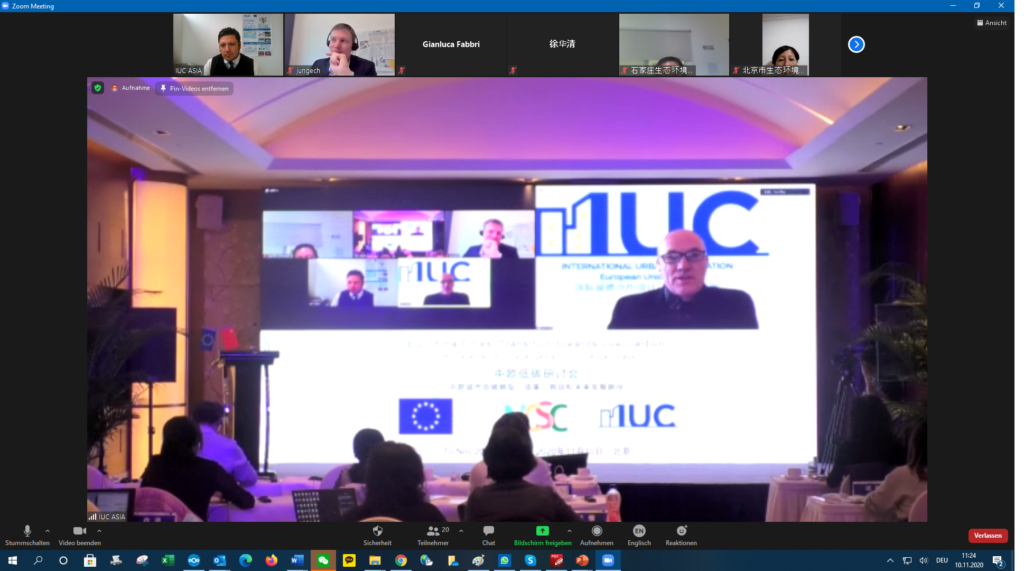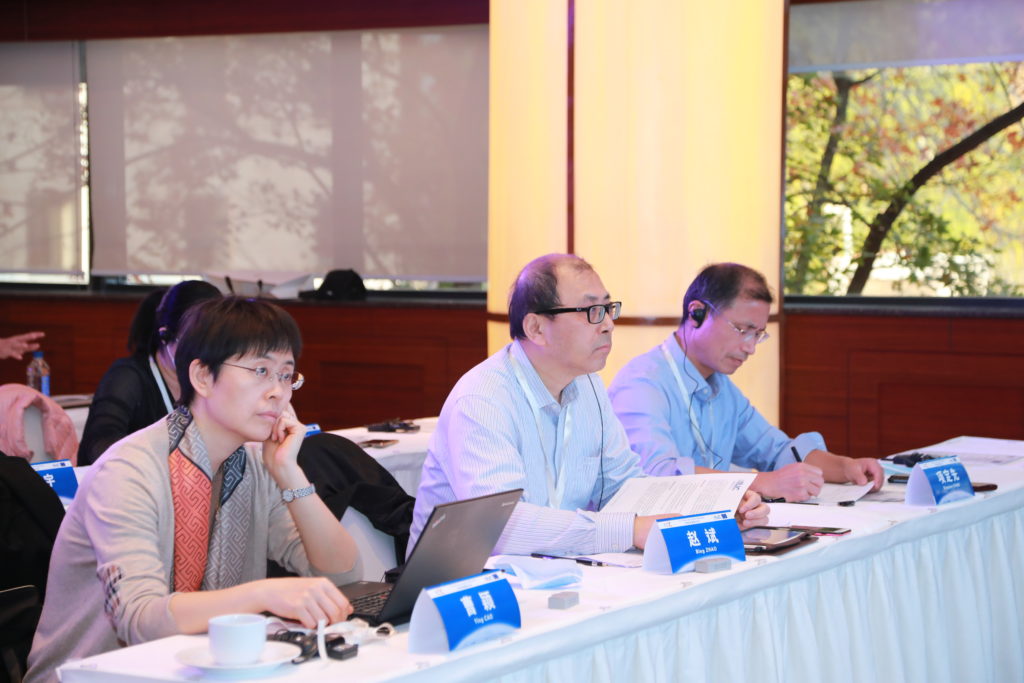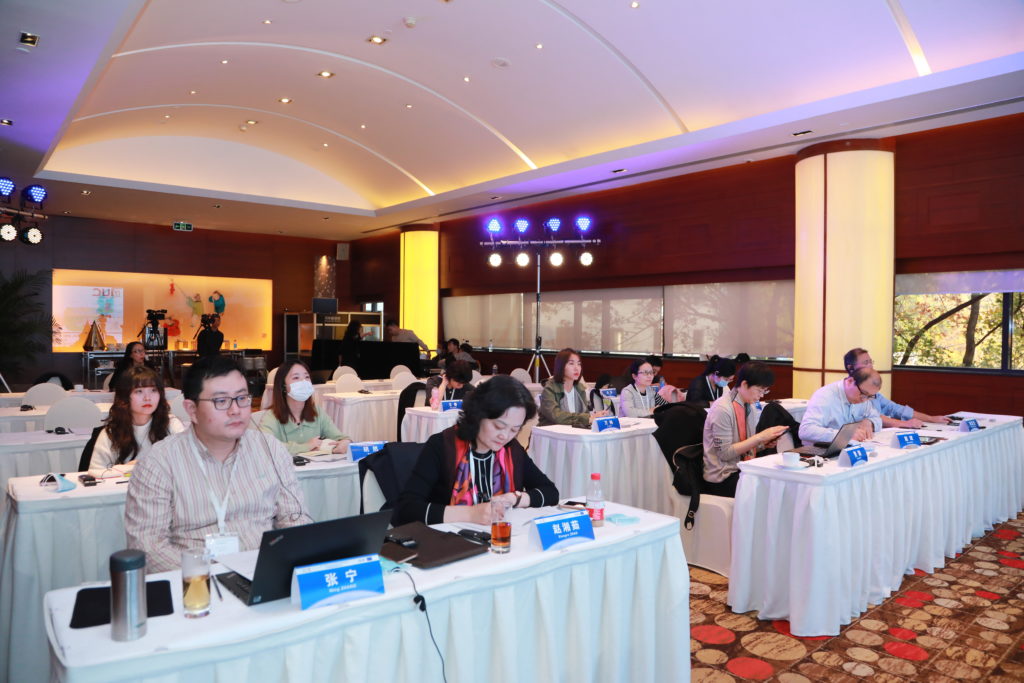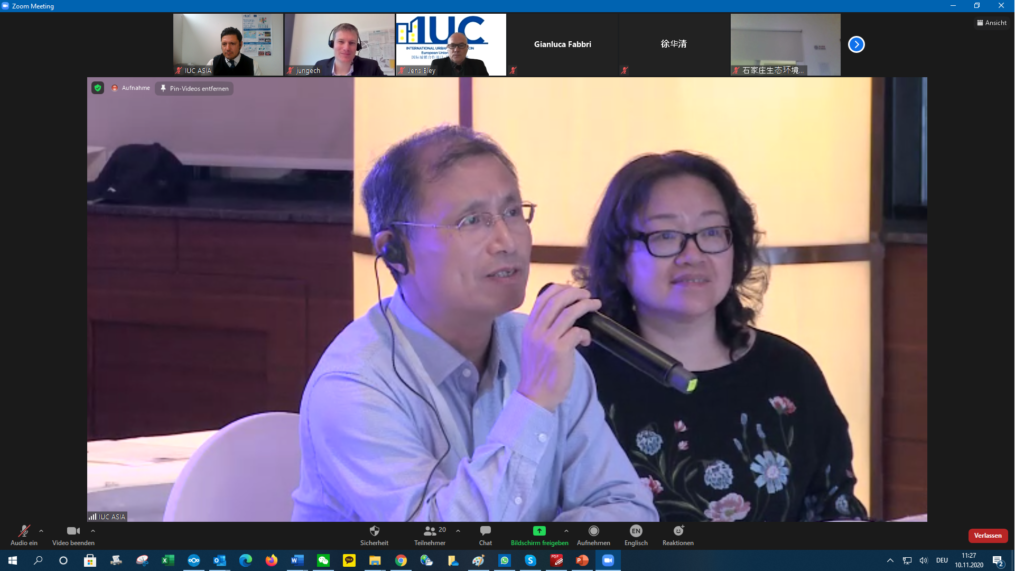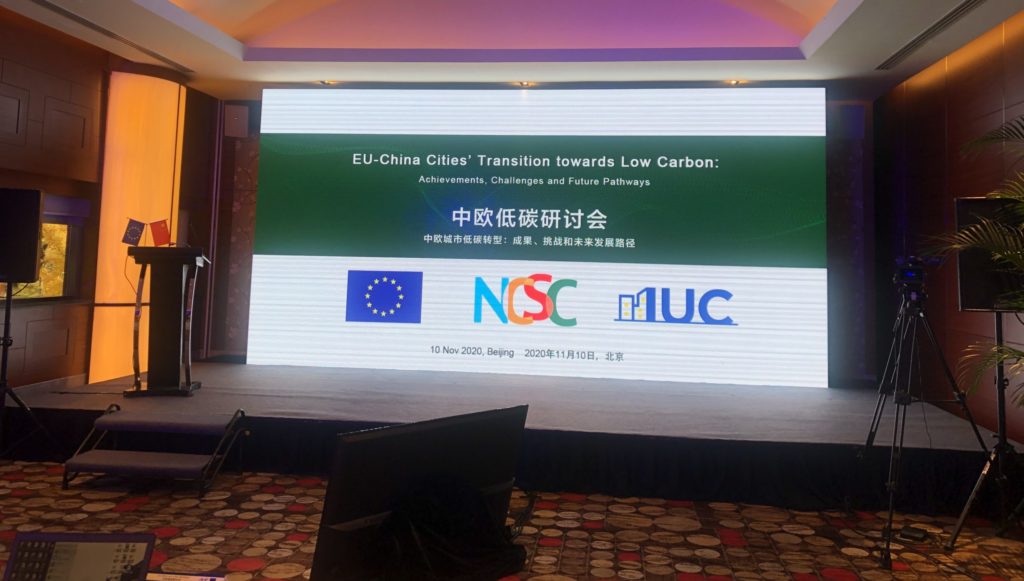The IUC Asia project held today a three-hour workshop on the transition from EU and Chinese cities towards low carbon development. The meeting involved nearly 40 participants – partly onsite in Beijing and partly online (via video conferencing). The event was a follow-up activity to the online exchange session on the EU-China Low Carbon Cities Study that took place between European and Chinese experts on 27th May 2020 (see online coverage here). The workshop reviewed the policy implications of the European Union’s Green Deal for European cities with regard to their transition towards low carbon. It also took stock of China’s results on lowering CO2 emissions within the 13th Five Year Plan (2016-2020) and draw possible implications for the upcoming 14th Five Year Plan (2021-2025) currently under elaboration. Experts from the cities of Hamburg, Milan, Ningbo and Wuhan shared their experiences in decreasing CO2 emissions and made make recommendations for the EU-China cooperation on local climate action. Onsite in Beijing were also represented the Chinese cities of Beijing, Chengdu and Tianjin. The event was organized by the IUC-Asia project in cooperation with the National Centre for Climate Change Strategy and International Cooperation (NCSC). Keynotes were held by Octavian Stamate – Councellor for Energy and Climate Action at the EU Delegation to China -, Mr. Xinming LU – Deputy Director-General for the Department of Climate Change at the Ministry of Ecology and Environment (MEE) -, Mr Eero Ailio – Principal Advisor for Energy Transition and Local Governance at the Directorate Energy for Energy of the European Commission (DG ENER) -, and Ms. Ying CAO – Research Director at the Department of Policy and Regulatory of China’s NCSC – and Mr. Huaqing XU – also Director at NCSC.
“Both the EU and China have chosen to follow the path towards decarbonisation, EU climate neutrality by 2050 and, Chinese carbon neutrality by 2060” said Octavian Stamate from the EU. He added that “Cooperation between cities in the EU and in China is therefore highly important to achieve decarbonization goals through specific measures in targeted sectors”.
Eero Ailio from the European Commission stated that “(…) it’s not only the polar bears in danger through climate change that drive our action but the health and future job opportunities of our citizens“. He added that the EU China Low Carbon Cities Partnership – launched 2016 – was a wise initiative to support peer-to-peer exchange on climate action at the local level. “Our cities have many differences like size, but also similarities like ageing population (…). In Europe, the recovery of city centres will be a first test to invest in positive climate change impact” he said. He invited Chinese cities to join the Global Covenant of Mayors for Energy and Climate.
At the event, the EU China Joint Low Carbon Cities Study was presented, which examines experiences and highlights opportunities for cooperation in many relevant sectors, including logistics, smart cities and digitalisation, circular economy and clean energy. Based on the findings and conclusions contained in the report and with the support of the IUC programme, participating cities have been able to learn and share from each other, to create solutions for common problems, and most importantly, to deliver concrete results. The study is available here: EU-China Low-Carbon Cities Joint Study_Final_GF.
Agenda
Impressions



